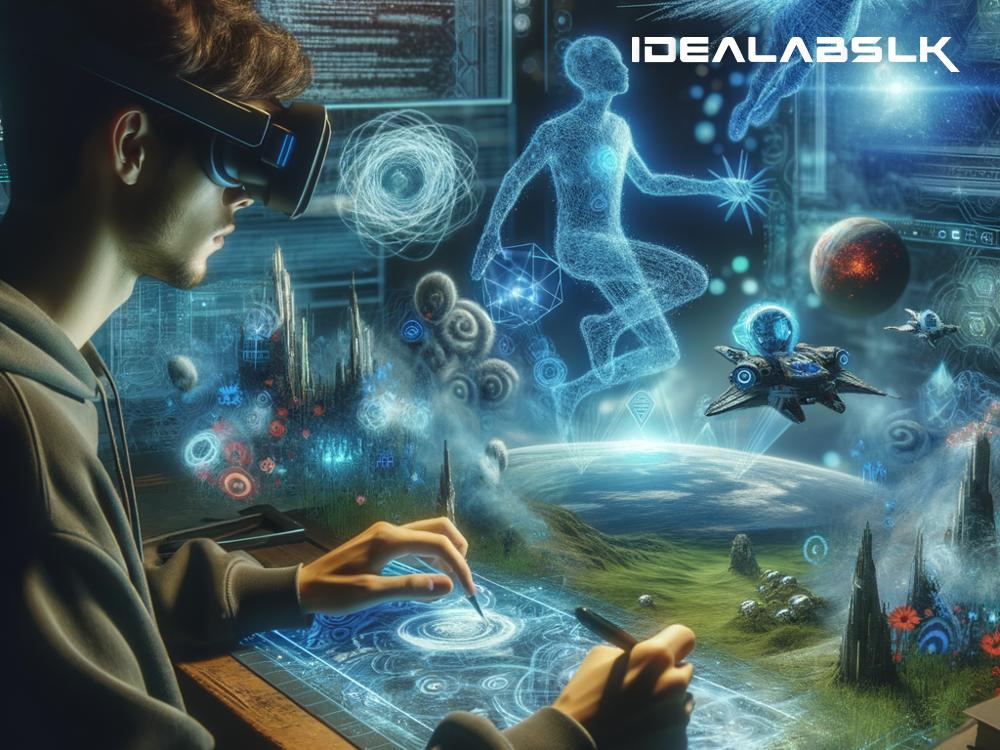How AI Will Transform the Future of Game Design in 2025: Smarter Mechanics and Enhanced Player Experience
The world of video games is about to change dramatically, and it's all thanks to Artificial Intelligence (AI). By 2025, we are going to experience a revolution in game design that will make today's games look like quaint relics of the past. AI isn't just going to improve games; it’s going to transform them entirely, bringing smarter mechanics and drastically enhancing player experiences. Let's dive into how this transformation will unfold.
Personalized Gaming Experiences
One of the most exciting ways AI is set to change gaming is through personalized experiences. Imagine playing a game that adapts to your playing style. Prefer to solve problems stealthily? The game will notice and offer more sneaky pathways. Love direct confrontation? Then brace yourself for thrilling face-offs. AI will make games incredibly responsive to individual player actions, preferences, and even emotional responses, creating a unique gaming journey for every player.
Dynamic Storylines
Gone will be the days of linear, unchangeable storylines. With AI, game narratives can become dynamic, branching out in countless directions based on your choices and actions. Think of a storyline that evolves, not just at scripted plot points but organically, as you interact with the game world and its characters. This makes for a deeply immersive experience, where the story feels genuinely yours.
Intelligent NPCs
Non-Player Characters (NPCs) have come a long way from their humble beginnings, but AI is set to push them to new heights. Imagine NPCs with complex emotions, memories, and the ability to evolve based on interactions not only with the player but also with other NPCs. This will breathe new life into game worlds, making them feel truly alive and significantly more engaging.
Revolutionized Game Development
AI won't just affect the in-game experience; it's set to revolutionize how games are made. Through procedural generation, AI can create vast, complex worlds in a fraction of the time it would take human developers. This doesn't just save time; it also allows for unprecedented creativity and variety in game environments. Additionally, AI-powered analytics will provide developers with deep insights into how players engage with their games, enabling fine-tuning that was previously impossible.
Enhanced Learning Through Games
Educational games are set to become far more effective and engaging thanks to AI. By tailoring challenges and content to the individual learner, educational games can maintain optimal difficulty levels, keeping players in a state of flow and maximizing learning outcomes. Furthermore, AI can simulate realistic interactions and scenarios, allowing players (or learners) to gain practical experience in a safe, controlled environment.
Accessibility for All
AI is breaking down barriers, making games more accessible to a broader audience, including players with disabilities. Voice commands, AI-generated content adapting to player abilities, and even games controlled entirely by eye movement or brain waves are on the horizon. This inclusivity means that more people than ever before will be able to enjoy gaming and benefit from its educational and social potentials.
Facing Challenges Head-On
Despite the bright future, integrating AI into game design doesn't come without its challenges. Concerns around privacy, data security, and the ethical use of AI loom large. The video game industry will need to navigate these issues carefully, ensuring that advancements in AI benefit players and society at large without compromising individual rights or safety.
The Future Is Near
The impact of AI on game design is more than just speculative; it's already beginning to take shape. As we move towards 2025, we can expect to see these technologies mature and proliferate, marking a new era for video games. The future of gaming is one of unlimited possibilities, smarter mechanics, and experiences that are more immersive, educational, and inclusive than ever before.
In conclusion, the transformation that AI is poised to bring to the video game industry by 2025 is nothing short of revolutionary. From personalized gaming experiences and dynamic storylines to intelligent NPCs and breakthroughs in game development, the way we think about, play, and are affected by games is fundamentally changing. As gamers and developers alike, we stand on the brink of a new world of gaming — one that promises not just enhanced entertainment, but deeper connections, learning, and inclusivity through the smart application of artificial intelligence. The future of game design is bright, and it's powered by AI.

